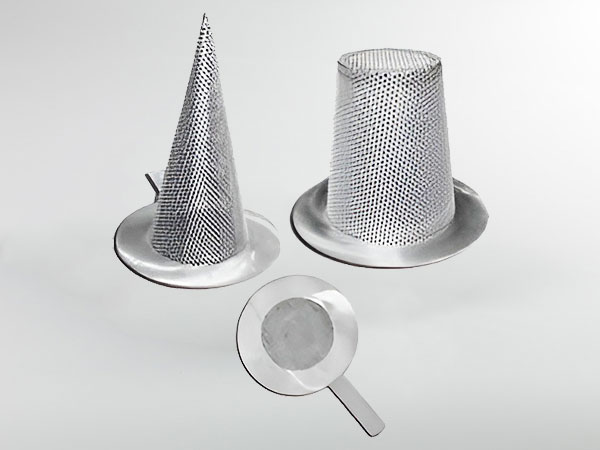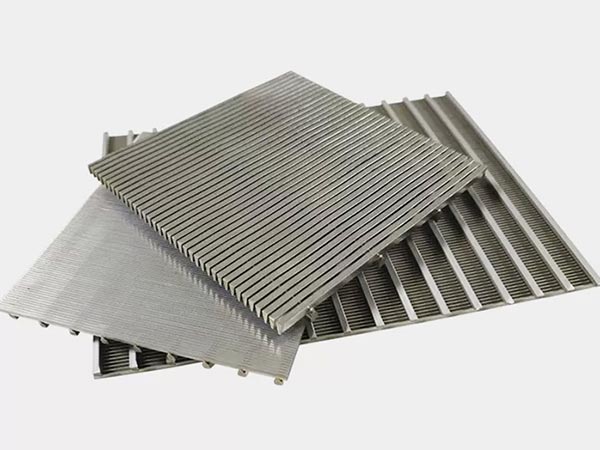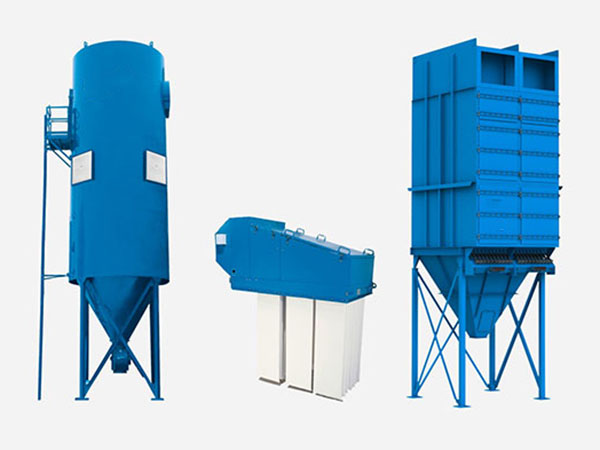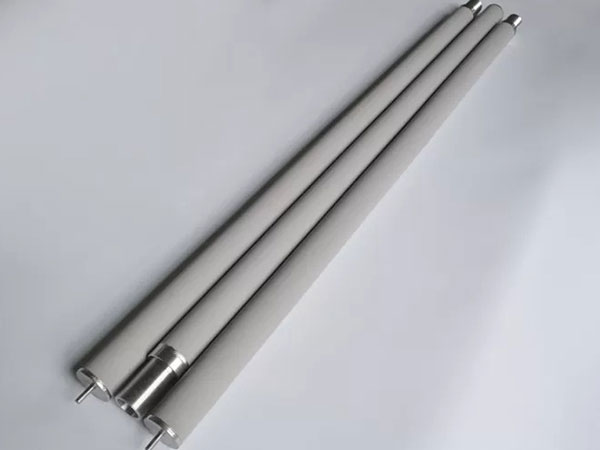Sintered Porous Metal Powder Filter Cartridges
Sintered porous metal powder is a product of powder metallurgy. Metal powder, small metal beads, are pressed and shaped in a mold by coaxial or isostatic pressing methods. The shaped metal is then sintered into a sintered porous metal powder filter cartridge. Hardware/end fittings can be sintered together with the metal powder filter body without additional welding.
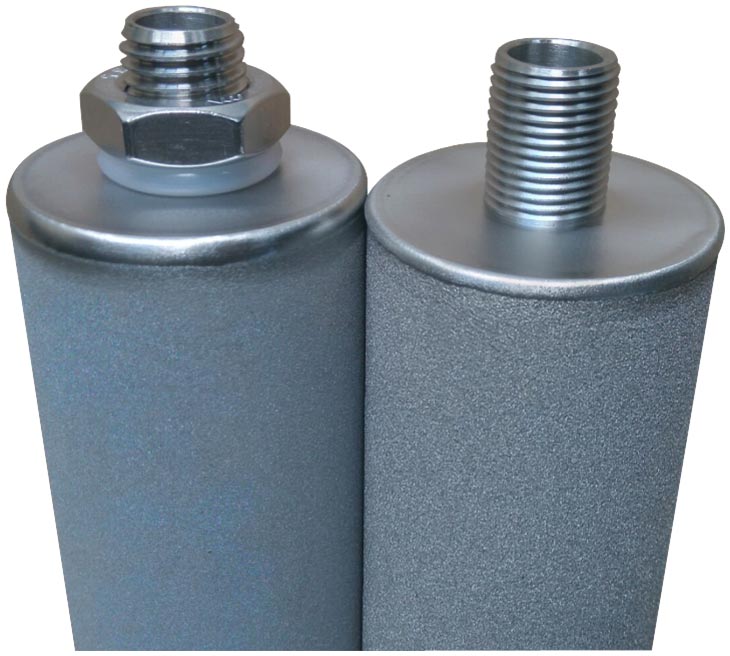
end fitting sintered with the porous metal powder
Characteristics of Sintered Porous Metal Powder Filter Cartridges
The characteristics of sintered porous metal powder filter cartridges are:
- Strong structure with porous filtration path
- Self-supporting structure, easy to form cartridge without any additional support
- Higher corrosion resistance due to mass volume
- Deep filtration performance
- Strong connection achieved by sintering hardware and powder body instead of welding
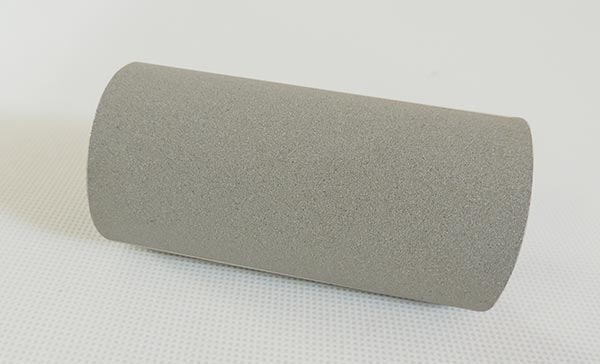
Applications of Sintered Porous Metal Powder Filter Cartridges
Sintered porous metal powder filter cartridge can be tubular, conical and cartridge shaped. They are widely used in:
- Catalyst retention and recovery
- Aeration
- Gas filtration
- Liquid filtration
- Fire arrester
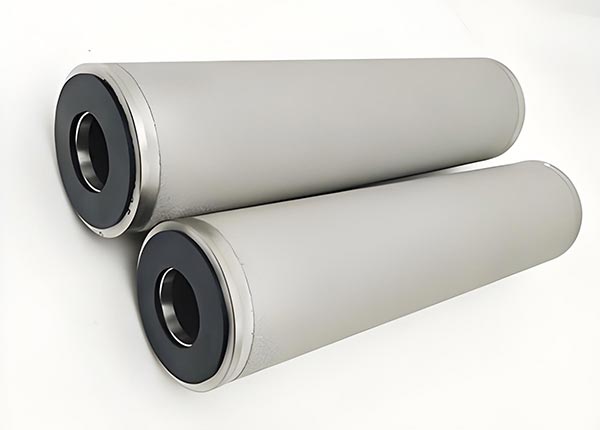
Micron options for sintered porous metal powder filter cartridges
1 micron, 5 micron and 25 micron are the common sizes of sintered metal powder filter elements. Other micron grades below 100 microns can be customized. Micron grades greater than 100 microns are rare due to structural characteristics and metal powder particle size limitations.
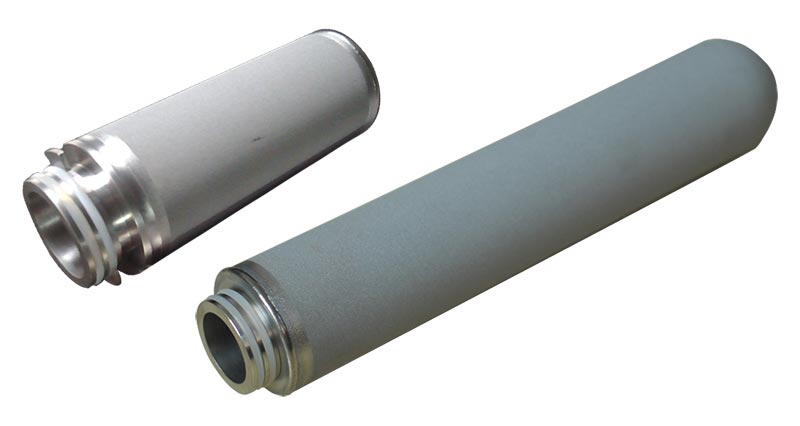
Material selection for sintered porous metal powder filter cartridges
Titanium and 316L (1.4404) stainless steel are standard materials for sintered porous metal powder filter cartridges. Hastelloy C276 and C22 are also popular materials for harsh corrosive environments in recent years. Inconel 600 601 is a good choice for high temperature applications, with a maximum resistance of 800 °C.
Other exotic materials are also available on request, such as SS304, Hastelloy X, Inconel 821, etc., but there may be a minimum order quantity requirement.
FAQ's
There are many ways to keep you going. Maintenance is crucial for industrial water filters to achieve sufficient filtration and long-term use. To avoid being shut down, you must clean and replace your filter element according to the manufacturer's instructions.
- Plan to regularly inspect the internal screen components.
- Arrange regular inspections of electronic control systems.
- Arrange to regularly add lubricating grease to bolts and sealing components.
- Regularly inspect the filter housing for paint peeling off..
Many industrial water filters need to be replaced within 18 months. Usually depends on the degree of pollution and frequency of use. Therefore, these factors will determine the service life of commercial water filters.

